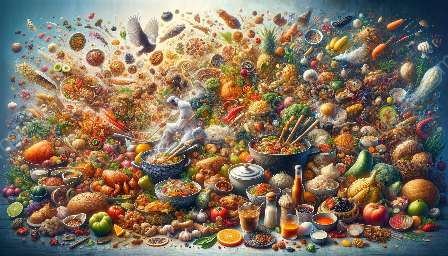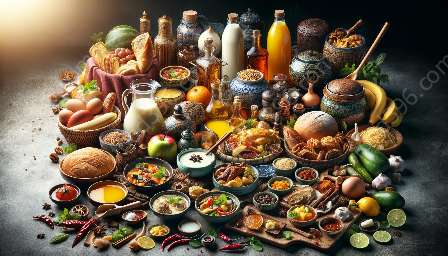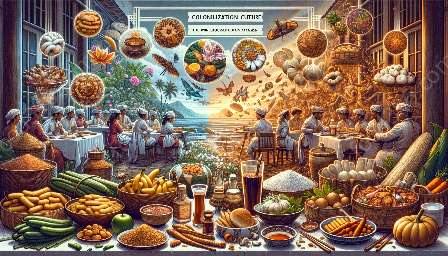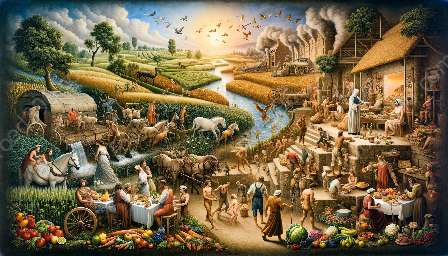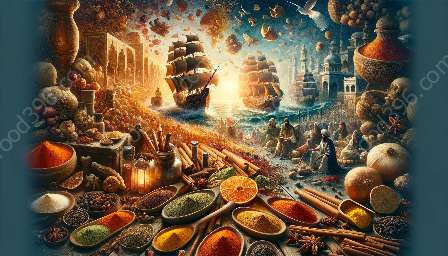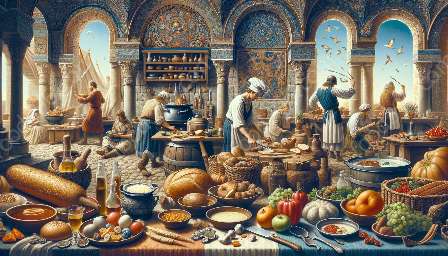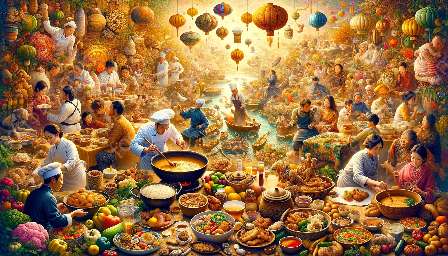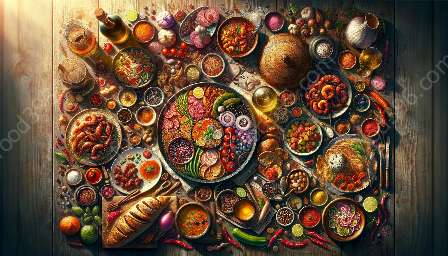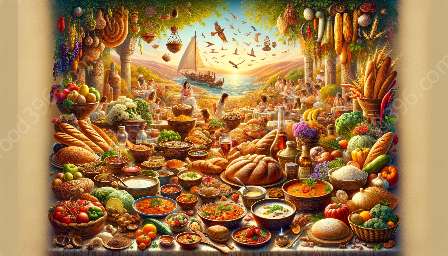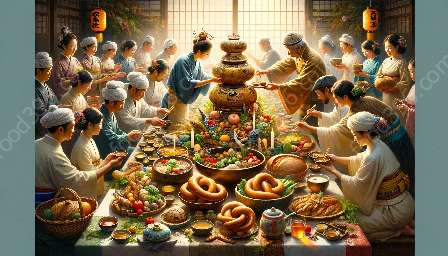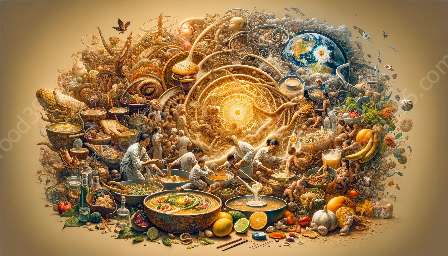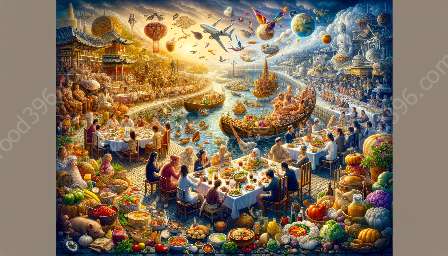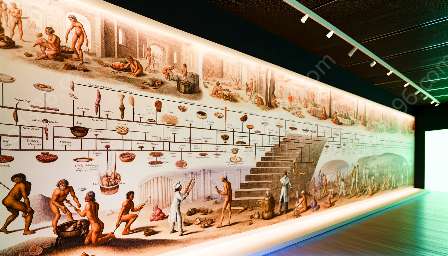Food culture is deeply ingrained in the history of human civilization, representing the traditions, customs, and practices that have evolved over centuries. The impact of colonization on food culture has been significant, shaping the way people eat, cook, and think about food.
Colonial Influence on Food and Drink
Colonization brought about the exchange of foods, recipes, and cooking techniques between different cultures. This cultural exchange had a profound impact on the food and drink traditions of both the colonizers and the colonized. It led to the fusion of ingredients, flavors, and cooking methods, creating new and unique culinary styles.
For example, the Columbian Exchange, resulting from Christopher Columbus's voyages, facilitated the transfer of foods between the Old World and the New World. This exchange introduced staple foods such as potatoes, tomatoes, maize, and chocolate to Europe, while European foods like wheat, rice, and livestock were brought to the Americas. This intercontinental exchange reshaped the diets and cooking methods of people on both sides of the Atlantic, laying the foundation for modern food culture.
Cultural Adaptation and Integration
As colonial powers established settlements and trading posts around the world, they encountered diverse food cultures. This encounter often led to cultural adaptation and integration, where colonizers assimilated local ingredients and culinary practices into their own food culture. In return, indigenous food traditions were influenced by the introduction of new ingredients and cooking methods, resulting in the creation of hybrid cuisines.
One notable example is the fusion of Asian and European culinary traditions in Southeast Asia. The region's diverse food culture was shaped by centuries of colonization by European powers such as the Portuguese, Dutch, and British. This colonial influence contributed to the emergence of dishes that blend indigenous flavors with European cooking techniques, exemplifying the complex interplay between colonialism and food culture.
Historical Significance
The impact of colonization on food culture has left a lasting imprint on global cuisine and culinary heritage. It is evident in the prevalence of dishes that reflect the fusion of different culinary traditions, showcasing the enduring influence of colonial encounters on contemporary food culture.
Furthermore, the history of food and drink serves as a lens through which to understand broader historical processes, including migration, trade, and cultural exchange. The study of food culture and history provides valuable insights into the interconnectedness of societies and the ways in which food has been a catalyst for cross-cultural interactions and adaptation.
Conclusion
Food culture and history are intertwined with the impact of colonization, reflecting the complex and multifaceted nature of cultural exchange and adaptation. Recognizing the influence of colonialism on food culture allows us to appreciate the diversity and richness of global culinary traditions, while also acknowledging the historical legacies that continue to shape how we eat, cook, and celebrate food.




